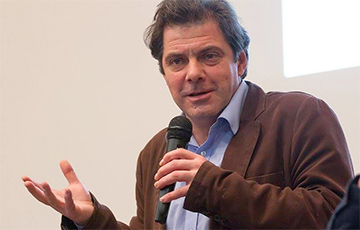Kirill Rogov: Lukashenka No Longer Exists as a "President"
11- 21.10.2020, 10:00
- 32,723

The Belarusian protests have changed the country in the long run.
Russian political scientist Kirill Rogov spoke about the advantages of the Belarusian protest for the future of the country and people and also what he thinks about Lukashenka's statement that thanks to modern means, "every demonstrator will be identified."
- This is a stupid statement. Please install, - says Kirill Rogov on Echo of Moscow. - First, he cannot do it. Second, please install, and what will change? This attempts to put pressure on those who keep going out and whom he cannot handle.
But we know well how the repressive possibilities of the regime are limited in reality. This is the reaction of society to repression. And in this sense, Lukashenka's regime is a good story of how it happens. This should be monitored as they try to increase the repression, then slightly reduce the intensity so as not to create even greater consolidation.
Of course, they really hope for the winter, and that worsening weather will reduce the number of people going out. And hotheads think that this is a stalemate or defeat of the protest. But I will repeat here what I have already said that the most important thing is not even what will happen in the short term, but some long term perspective.
Until August of this year, rallies with 100,000 participants took place in Belarus, in my opinion, once or twice. Now, we have been observing these 100,000 rallies every week for 2 months. And this is a change in the country.
At the other extreme here are the Kyrgyz protests and the way events developed in Kyrgyzstan. But we understand that the way events are developing in Kyrgyzstan does not lead to a change in the political regime, does not lead to a change in the nature of the regime, the nature of political culture, and a change in politics, its principles of existence.
But what is happening in Belarus - this is in the future (we do not know how distant it is, perhaps, not far) that leads to a change in political culture, the nature of politics, and attitudes towards it.
What is the principle here? When this crisis, one way or another, is resolved, the next rulers of Belarus, the elite, will know: yes, we have such a danger, but if we cross some flags, go somewhere - this will happen, and we will have a crisis. Because this is a real large-scale political crisis that has taken place. Lukashenka is not recognized as president by most developed countries. He doesn't exist as president. This is a large-scale political crisis for the country, for its entire political structure.
And the next generation of elites will have to take into account the possibility of such a crisis, put some flags and look for ways to interact, even look for ways for the deception of the population, but more cultural deception that does not lead to such things.
This is the most important experience of institutional protests for the development of politics, the development of a political organism. And this is happening in Belarus, and this is very good. And in this sense, it is not necessary to concentrate so much on how it will end up - with victory or defeat. You can win, but it won't make any sense, like in Kyrgyzstan. Or one could suffer a defeat that would make the victory of a real change in the nature of the political regime inevitable in some future.
In Poland, protests began in 1980. "Solidarity" came to power in 1989. 9 long years have passed, which have contained a lot of things. But this is a single process, and this is precisely the "Solidarity" that came to power, with precisely the basic political ideas that it has been carrying since 1980.
And this is much more important for the country's long history than who today seizes the presidential palace or does not seize the presidential palace.








